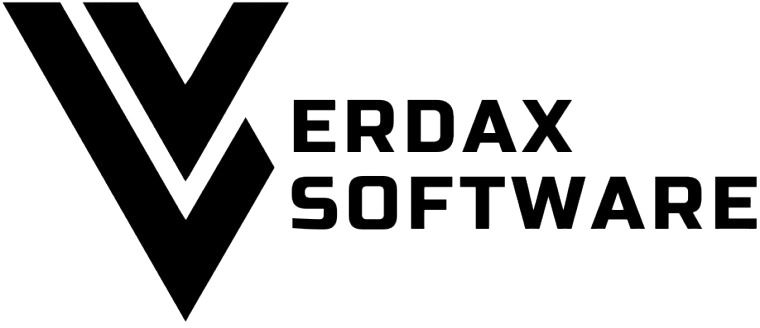
Graduate to Professional: Key Skills to Master in Your First Year
Transitioning from academia to the workforce is both exciting & challenging. Learn the essential skills you need to master in your first year as a professional.
Transitioning from Graduate to Professional
Transitioning from the world of academia to the workforce is an exciting yet challenging time. The first year in your professional journey is critical as you lay the foundation for future career growth. This phase is about more than just applying the knowledge you gained in school—it's about mastering a set of essential skills that will set you apart and make you a valuable asset in your organization. Whether you are stepping into a corporate environment or embarking on a different career path, focusing on these key areas will ensure a smooth transition from graduate to professional.
The Importance of Communication Skills
One of the most critical skills to master in your first year as a professional is communication. In the workplace, how you present yourself, both in person and in writing, can make a significant difference in how you're perceived. While you may have excelled in academic presentations, professional communication demands clarity, conciseness, and the ability to tailor your message to your audience.
In your first year, you'll be expected to write emails, reports, and perhaps give presentations. Learning to adapt your tone depending on whether you're communicating with a colleague, client, or supervisor is crucial. Effective communication also involves active listening—a skill that's often overlooked. Ensure you listen carefully, ask thoughtful questions, and provide clear responses, as this can help in building strong professional relationships.
Time Management and Organizational Skills
In academia, you may have had the flexibility to work at your own pace, but in the professional world, time management becomes a priority. With deadlines, meetings, and multitasking, it's easy to feel overwhelmed in your first year. Therefore, developing excellent time management skills will help you stay on top of your workload without compromising on quality.
Begin by setting clear goals and breaking them into smaller, manageable tasks. Prioritize based on deadlines and importance, and make use of tools like calendars and task management apps. Moreover, being organized extends beyond just managing time—it includes organizing your workspace and digital files. Having a clutter-free environment will allow you to focus better and find important information quickly.
Adaptability and Flexibility
The professional world can be unpredictable, and your ability to adapt is vital for success. While your education may have prepared you for specific roles or tasks, the workplace is dynamic. New technologies, evolving team structures, or shifts in company priorities may require you to step out of your comfort zone and learn new skills quickly.
Flexibility doesn't only refer to technical skills but also to your mindset. Being open to feedback, accepting changes in your role, and showing initiative to learn new things will make you an indispensable team player. This adaptability will help you grow both professionally and personally.

Collaboration and Teamwork
In your first year, you'll likely be working on teams, whether in a collaborative project or as part of your day-to-day responsibilities. Understanding how to work effectively with others is key. This includes being a reliable team member, contributing your ideas, and respecting others' input. Building trust within a team takes time, and you can foster it by being consistent, meeting deadlines, and communicating openly.
Remember, working in a team doesn't always mean leading from the front. Sometimes, playing a supportive role is just as valuable. Learning when to step up and when to step back is a balancing act that every successful professional masters.
Critical Thinking and Problem-Solving
Companies value employees who can think critically and solve problems independently. In the academic world, you might have had professors to guide you step by step, but in your professional life, you're expected to analyze situations, identify potential issues, and propose solutions.
Honing your critical thinking skills involves asking the right questions and approaching problems from multiple perspectives. Don’t hesitate to seek help when needed, but try to bring potential solutions to the table when you do. This approach not only showcases your problem-solving abilities but also highlights your initiative and leadership potential.
Emotional Intelligence and Self-Awareness
Success in the workplace isn't just about technical skills—your emotional intelligence (EQ) plays a crucial role in how you interact with others. Being able to manage your own emotions, empathize with colleagues, and navigate office dynamics are key components of EQ. High emotional intelligence will allow you to build better relationships, resolve conflicts effectively, and lead with empathy when necessary.
Your first year is the perfect time to become more self-aware. Reflect on your strengths and areas for improvement. Understanding your emotional triggers and how you respond to stress will help you maintain a professional demeanor, even in high-pressure situations.
Networking and Relationship Building
Your professional network is one of the most valuable assets you can build in your career. In your first year, you'll meet numerous people—both within your organization and in industry events or conferences. Building these relationships early on can open doors to new opportunities in the future.
Networking isn't just about what others can do for you; it’s about what you can offer as well. Show a genuine interest in others' work, and find ways to collaborate. Keep in touch with your peers and mentors, and don’t be afraid to ask for advice. As you progress in your career, your network will become a powerful resource for guidance, support, and potential career moves.
Leveraging Technology and Digital Tools
In today's fast-paced world, technology plays an integral role in almost every profession. Whether it’s using project management software, CRM tools, or social media platforms, having a solid understanding of these technologies can boost your efficiency and performance.
Don’t shy away from learning new tools, even if they seem outside your current role. Being proficient in digital tools will not only make your day-to-day tasks easier but will also help you stay competitive in an increasingly tech-driven job market.
From Graduate to Professional: Navigating Early Challenges
The early days of your career may present challenges that you didn't anticipate. Adapting to the pace of the professional world, dealing with office politics, and managing work-life balance are just a few obstacles graduates face in their first year. However, with the right mindset and skills, you can navigate these challenges successfully.
Building Professional Resilience
As you adjust to the realities of professional life, resilience becomes an essential trait. You will likely face setbacks, whether it’s not getting a project you wanted or receiving constructive criticism. Building resilience means learning to bounce back from these experiences stronger and more determined.
Developing coping strategies, such as mindfulness, regular exercise, or a supportive network of friends and colleagues, can help you manage stress and stay focused on your long-term goals.
Conclusion
Transitioning from a graduate to a professional is a defining period in your career. The skills you master in your first year, communication, time management, adaptability, and emotional intelligence, will lay a solid foundation for future success. As you navigate this new chapter, remember that continuous learning is key to staying ahead in your field.
For professionals looking to further accelerate their learning and gain industry-recognized qualifications, Verdax offers a personalized, AI-driven learning experience. Whether you're pursuing certifications like AgilePM or CIPD, or simply looking to expand your skill set, Verdax’s conversational learning platform is designed to fit into your busy schedule and help you reach your career goals faster. Learn more about how you can enhance your professional development at Verdax by clicking here.
